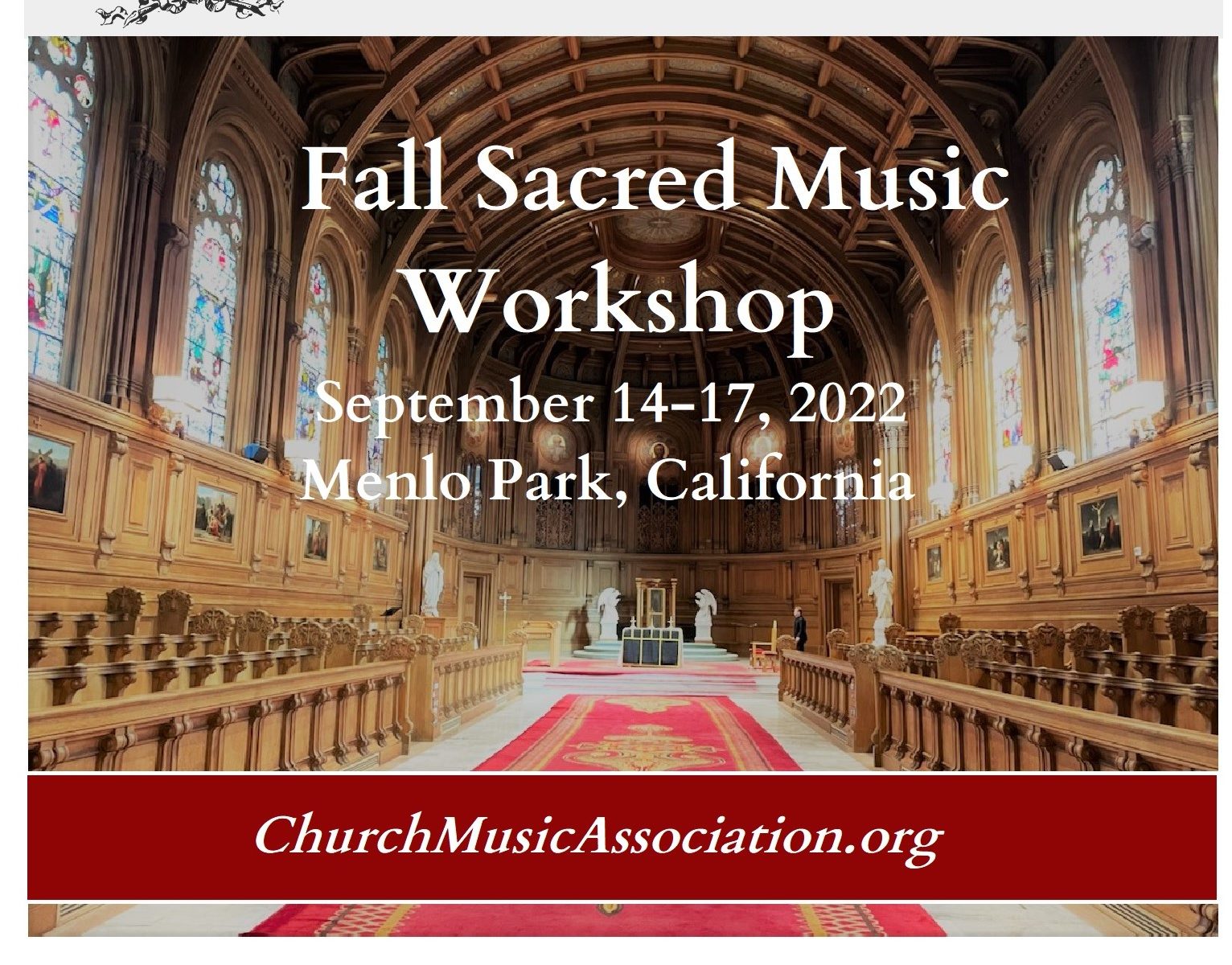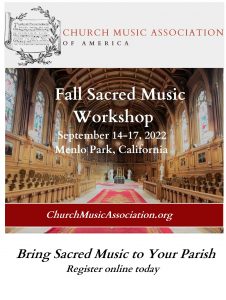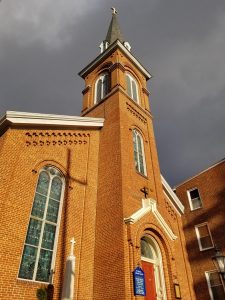Here it is, Monday after Colloquium 2014, and in the mail are two issues of SACRED MUSIC, Spring and Summer of this same year. Thank you, Bill Stoops, for having such quick access to your status reports at Indianapolis!
All I can manage right now is a perusal of content, particular of V.141.2 which celebrates CMAA’s 50th anniversary of its amalgam merge of the St. Caeilia and St. Gregory Societies in 1964. There is much wheat to harvest in this volume and its predecessor. As I was skimming the Summer edition I noticed a title that reminded me of a former CMAA attendee’s great essay about being a so-called “Pastoral Musician,” that being the article by Rev. Ralph S. March, S.O. Cist, “Are You a True Minister of Music?” That is a captivating, challenging and still relevant question as there is yet and still great, likely more division between folks who left Indy and week ago and those situated in St. Lousis this week. It occured to me that Dr. Jenny or someone else responsibly excerpted certain quotations from Fr’s discourse of 1972 and just by entertaining those quotes one could respond via an article’s length here at the Cafe.
Part the first: A music minister should be familiar with the most important musical styles of any given century.
That maxim still and ever shall stand. However, who could have seen in ’64 or in ’72 the curve of instability to stability that 50 years of contemporaneous composition, exposition and distribution of an unheard-of concept of sacred “song” by Lucien Deiss, the SLJ’s/Dameans/St. Thomas More, the Minnesotans, the Californians and so forth could become bedrock in Anglophile parishes and others back then. (I leave out the seminal folkies purposefully.) Surely not Westendorf nor Lindusky who were there in BoysTown in ’64. How does one deal with the compositions of not just these but those of Howard Hughes, Thomas Savoy, Leo Nestor, Jeffrey Honore, and then multi-faceted, schooled composers such as Janet Sullivan Whitaker, myself, Jan Michael Joncas, Richard Rice, Jeffrey Quick, Francis Koerber and many, many others whose genres aren’t so easily categorized? The simple response is that Fr. March’s advice still stands, but the demands are much more upon us. Some will argue that the Conciliar documents of the Second Council are unequivocally clear: Primacy of place to chanted forms, and their inheritors generically designated polyphony (a term of actually little pragmatic significance.) Yes, surely that seems clear. But under the lenses of the legislative options provided by those same documents, who can stand and call themself the final arbiter of a music’s suitability? (That’s a rhetorical question, no need to actually engage it, really.) But to purposefully remain ignorant of both specific genres and pieces in the last 50 years actually doesn’t pass Fr. March’s muster. The catch qualifier is the adjective “most important” music styles of all centuries. I’ve always maintained that cannot be fulfilled by wholesale dismissal based upon any prejudicial criteria.
Part the second The music minister must be a student, an educator, and a diplomat.
Uh, yup. Student? Check! Educator? Check! Diplomat? Huh…….? We are not just diplomats representing philosophies and idealogies of CMAA or Mother Church at the level of parish practice. We a diplomats first and foremost of Christ Jesus, who trumps any objectivification of the rule of worship and the rule of belief. When the Pharisees tried to pigeon-hole Him in order to discredit Him according to the Decalogue, Christ veni, vidi and vici’d their folly forever. Diplomats don’t deal (despite the political machinations of our current era or federal government) with policies, but with people.
To these 63 year old astigmatized, far-sighted and strabymus (crossed) eyes this is our largest failure even with Fr. March’s criteria back in ’72. Unfortunately there’s loads of evidence in cyberspace CMAA and even at Colloquia that many of us think “we da Bomb.” We move from place to place like Yul Brynner’s character in the “Magnificent Seven” taking on noble causes for ignoble recompense thinking that we’re not just saving the plebes and peasants from their gross, feudal and outlaw occupying fascist lords, but we’re going to change their whole attitude about “musicam sacram” in less than a fortnight. Not. Go to the MSForum, three to six RotR gigs are posted there at any given time. Why?
Because we have to love and forgive our people and their pastors. We have to speak to them honestly, in both truth and love. But in my experience, many of us in CMAA equivocate truth with love. No, going to hell is not an automatic consequence of singing “On Eagles’ Wings.” Coaxing their sensibilities towards “Qui habitat” via whatever sensory input (remember the second of March’s admonitions, “teacher,” requires skills that can influence the receptors’ many modes of intellectual and spiritual acquisition. I’m a bit tired now….will resume this tomorrow.






 … Over the years teaching chant to various groups at the Colloquium, many students had expressed their desire for more Chant instruction, particularly in subjects like the modes, but due to the time limitation of the Colloquium it was impossible to cover these topics.
… Over the years teaching chant to various groups at the Colloquium, many students had expressed their desire for more Chant instruction, particularly in subjects like the modes, but due to the time limitation of the Colloquium it was impossible to cover these topics.
